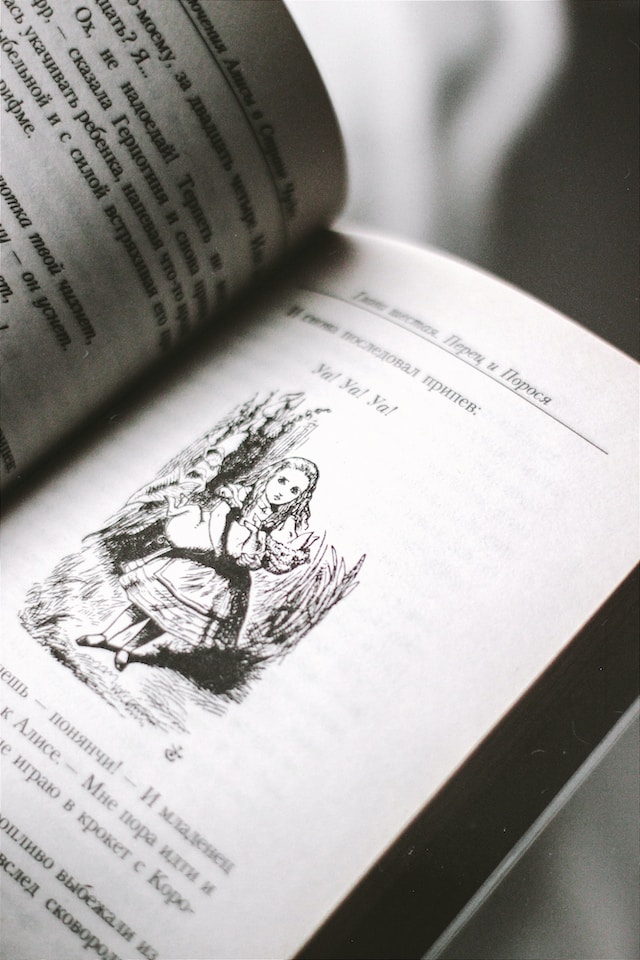Fantasy literature has captivated readers for centuries with its ability to transport them to realms of imagination, where the ordinary rules of the world are suspended, and the fantastical reigns supreme. From the epic adventures of J.R.R. Tolkien’s Middle-earth to the whimsical wonders of Lewis Carroll’s Wonderland, fantasy literature offers an escape into worlds brimming with magic, myth, and mystery. But beyond mere escapism, fantasy literature serves as a mirror to our own reality, reflecting timeless themes and universal truths in ways both enchanting and profound. In this exploration, we delve into the rich tapestry of themes woven throughout the fabric of fantasy literature, examining their significance and enduring appeal.

The Quest for Identity
One of the central themes in fantasy literature is the journey of self-discovery and the quest for identity. Protagonists often find themselves thrust into unfamiliar worlds where they must navigate not only external challenges but also the internal struggle to understand who they are and their place in the grand scheme of things. From Harry Potter’s journey of self-discovery as a wizard destined to confront the dark forces of Voldemort to Frodo Baggins’ transformation from a humble hobbit to the unlikely hero of Middle-earth, the theme of identity resonates deeply with readers, inviting them to ponder their own quests for self-understanding and purpose.
| Character | Journey of Self-Discovery |
|---|---|
| Harry Potter | Discovers his identity as a wizard and the chosen one destined to confront Voldemort |
| Frodo Baggins | Transforms from a humble hobbit to the unlikely hero of Middle-earth |
The Battle Between Good and Evil
At the heart of many fantasy tales lies the age-old conflict between good and evil. Whether it takes the form of a dark lord seeking domination or a malevolent force threatening to engulf the world in darkness, the battle between good and evil serves as a powerful narrative engine, driving the plot forward and imbuing the story with a sense of urgency and moral significance. Through the trials and tribulations of characters like Gandalf the Grey and Aragorn in “The Lord of the Rings” or Aslan and the Pevensie siblings in “The Chronicles of Narnia,” readers are reminded of the eternal struggle between light and darkness, and the enduring power of courage, hope, and redemption.
| Character | Role in the Battle Between Good and Evil |
|---|---|
| Gandalf the Grey | Guides the Fellowship in the fight against Sauron and the forces of Mordor |
| Aslan | Sacrifices himself to save Edmund and ultimately defeat the White Witch |
The Hero’s Journey
A recurring motif in fantasy literature is the hero’s journey, a transformative arc in which an ordinary individual is called to adventure, faces trials and challenges, and ultimately emerges as a changed and empowered figure. Drawing inspiration from mythological archetypes and Joseph Campbell’s “monomyth,” fantasy authors craft narratives that resonate with readers on a primal level, tapping into universal desires for growth, transformation, and triumph over adversity. Whether it’s the coming-of-age journey of Katniss Everdeen in “The Hunger Games” or the epic odyssey of Odysseus in “The Odyssey,” the hero’s journey serves as a blueprint for personal and collective evolution, reminding us that greatness lies within reach of those who dare to embark on the quest.
| Character | Embarks on the Hero’s Journey |
|---|---|
| Katniss Everdeen | Volunteers as tribute and becomes the symbol of resistance against the oppressive Capitol |
| Odysseus | Endures a decade-long journey fraught with peril and hardship before returning home as a wiser and more resilient hero |
The Power of Imagination
Fantasy literature celebrates the boundless power of imagination, inviting readers to explore fantastical realms limited only by the scope of the author’s creativity. Through vivid descriptions, rich world-building, and fantastical elements ranging from magic spells to mythical creatures, fantasy authors awaken the imagination and spark a sense of wonder in readers of all ages. Whether it’s the whimsical landscapes of “Alice’s Adventures in Wonderland” or the sprawling kingdoms of “A Song of Ice and Fire,” fantasy literature inspires readers to dream, to believe in the impossible, and to envision worlds beyond the confines of reality.
| Book | Features Rich World-Building and Imagination |
|---|---|
| “Alice’s Adventures in Wonderland” | Introduces readers to a whimsical realm filled with anthropomorphic creatures and nonsensical logic |
| “A Song of Ice and Fire” | Immerses readers in a sprawling fantasy world populated by complex characters and political intrigue |
Conclusion
Fantasy literature serves as a gateway to worlds of wonder and imagination, where the boundaries of reality dissolve, and the extraordinary becomes possible. Through themes of identity, good versus evil, the hero’s journey, and the power of imagination, fantasy authors weave tales that resonate with readers on a deep and profound level, inviting them to explore timeless truths and universal aspirations. As we journey through the realms of fantasy literature, we are reminded that the true magic lies not only in the fantastical worlds we explore but also in the insights we glean about ourselves and the world around us.











